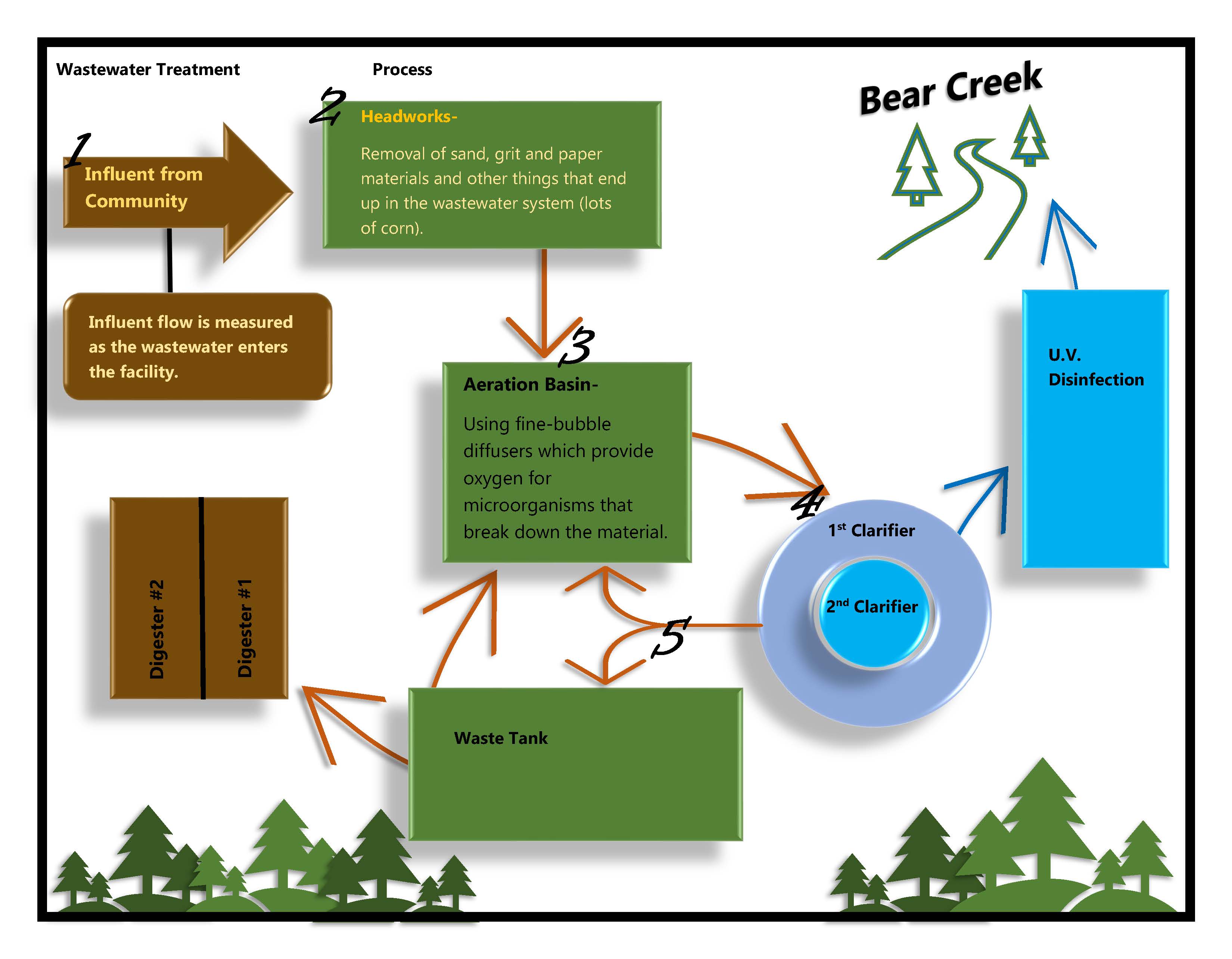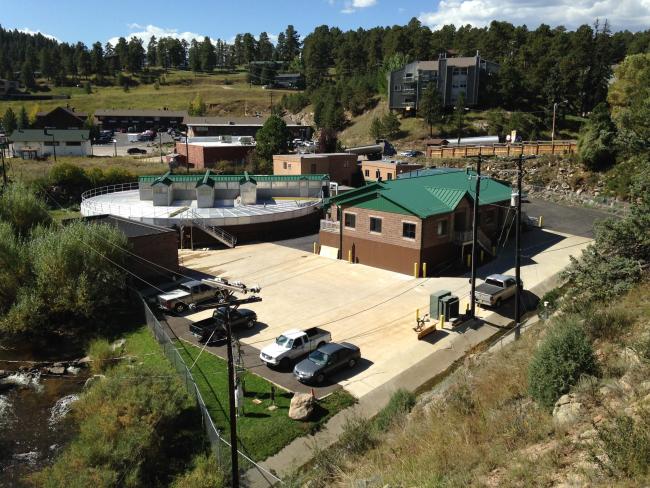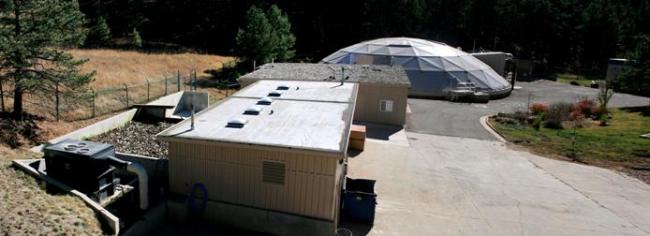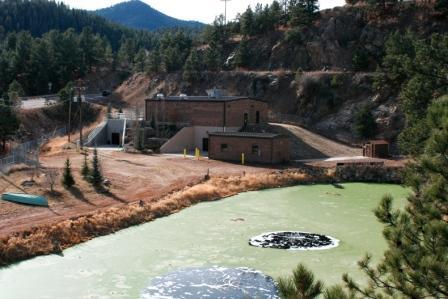Wastewater Treatment Process

Evergreen Metro District Wastewater Plant
The processes below summarize those used at the EMD wastewater facility:
- Preliminary Treatment involves the removal of sand, grit and larger solids in the wastewater using screening equipment or bar racks. Influent flow is also measured in this process.
- Primary Treatment removes 35 to 50 percent of the pollutants using a settling tank (clarifier) to remove heavy organic solids and a skimmer to remove floating grease. The grease is pumped and hauled off by a contract hauler.
- After primary treatment, wastewater still contains solid materials either floating on the surface, dissolved in the water or both. Under natural conditions, these substances would provide food for such organisms as fungi, algae and bacteria that live in a stream or lake. Most public wastewater treatment plants provide a second stage of treatment known as secondary treatment to remove more of the pollutants – up to 85 to 90 percent. Secondary treatment is largely a biological process. Air is supplied to stimulate the growth of bacteria and other organisms to consume most of the waste materials. The wastewater is then separated from the organisms and solids, disinfected to kill any remaining disease-causing pathogenic bacteria using ultra-violet light radiation by destroying genetic material and preventing cell replication and then discharged into the receiving stream or water body.
- Sand Filters (Tertiary Treatment) are used to remove fine particles that do not settle out in the final clarification process and are returned to the head of the aeration tanks.
- Aerobic Sludge Digestion is a separate process used to break down waste organic material generated from the treatment processes. The sludge, which is now called Biosolids after aerobic treatment is land applied for beneficial use as a fertilizer.

West Jefferson Metro District Wastewater Plant
The Wastewater Treatment Facility utilizes the following treatment processes:
- Preliminary
- Secondary
- Tertiary
The wastewater facility utilizes identical technologies as the Evergreen facility except for the Primary process. The disinfection process is accomplished with ultraviolet light. Filtered effluent passes through a chamber that houses a bank of ultraviolet lights. The energy from the lights kills the pathogenic bacteria. The main advantage to this process is safety. Hazards inherent with ultraviolet radiation do exist, but personnel no longer handle more dangerous chlorinating or de-chlorinating chemicals for disinfection
Kittredge Wastewater Plant
The Wastewater Treatment Facility utilizes the following treatment processes:
- Preliminary
- Secondary
- Tertiary
The Kittredge wastewater facility utilizes identical technologies as the Evergreen facility except for Primary Treatment. Sludge (Biosolids) generated by the treatment processes is aerobically treated, removed by, and ultimately hauled off by a licensed contractor to be land applied as a fertilizer. The Kittredge facility also utilizes a polishing pond as a final filtering process prior to discharge into Bear Creek.



